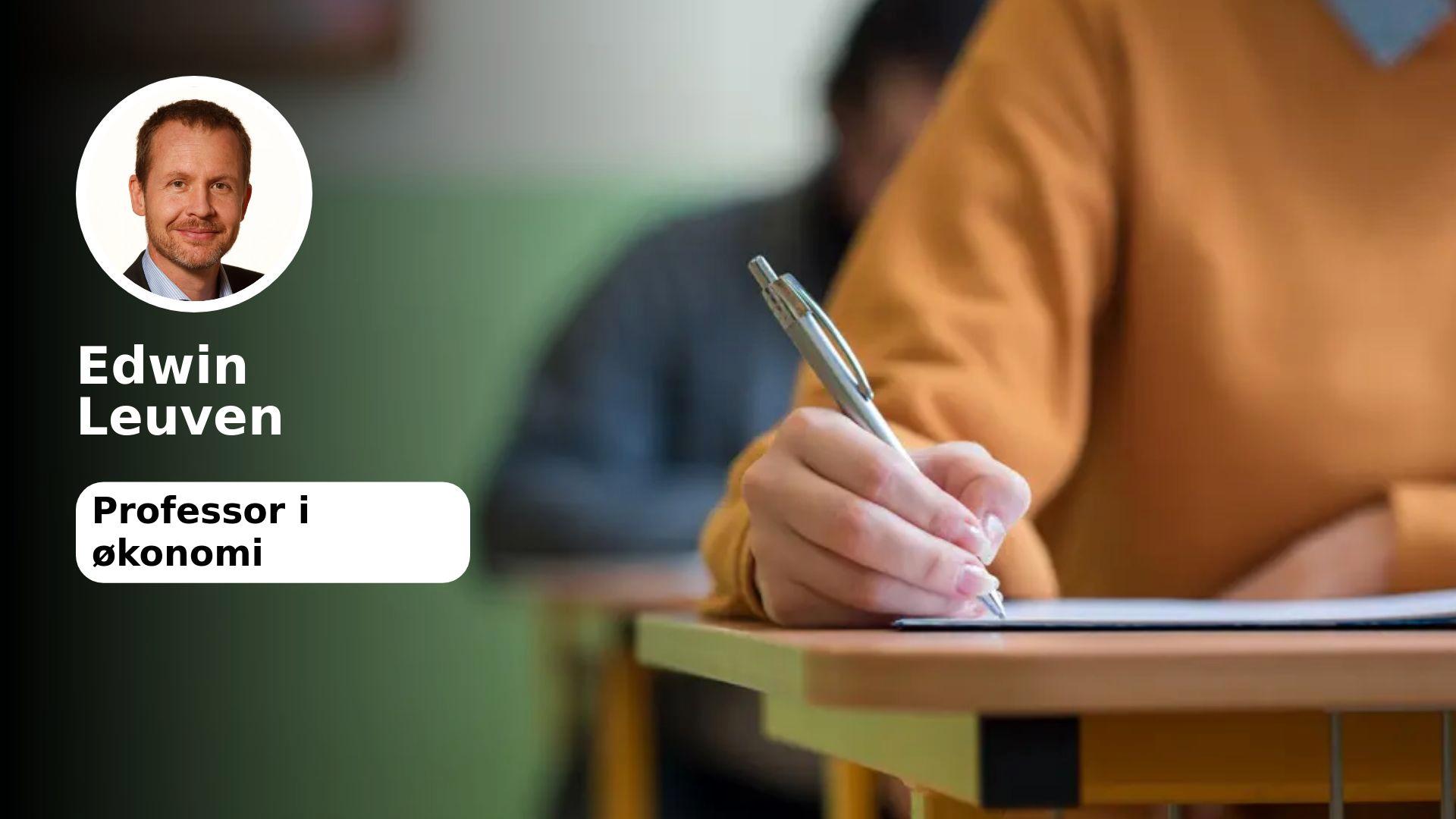-
–Edwin Leuven
Professor of economics, University of Oslo
–
—
A timely question to ask is whether it is really necessary to have at least 68 in grade points to be a skilled GP, writes Edwin Leuven. Large financial returns increase the motivation to choose certain careers over others. There is a problem.
Debate
This is a debate post. Opinions in the text are the responsibility of the writer.Every year, the latest admissions figures cause joy. Joy among the applicants who have managed to apply for high-profile studies, and joy among the studies and institutions that have managed to attract the “best” applicants.
Every year, the admissions figures also cause concern. The race to the top displaces many, not least boys, and a number of studies are becoming increasingly difficult to enter.
Proposed solutions such as quotas for gender points and limits for taking up subjects can affect these trends. However, these solutions focus only on the symptoms and not on the root of the problem: namely the structural imbalance between demand and supply.
Economics motivates career choices
This imbalance creates what economists call “rents” – income derived from artificial scarcity – which are often substantial. Research from Norway shows, for example, that applicants who scored just above the point limit to enter medical school earn half a million kroner more nine years later than similar applicants who did not enter medical school because they had a marginally lower score.
Such large financial returns increase the motivation to choose certain careers over others. As a consequence of this, the best students in Norway apply for professional studies such as engineering, dentistry, law and medicine. In the absence of this type of motivation, they might have chosen to become researchers in other fields, teachers or something else they actually have more talent for.
A timely question to ask is whether it is really necessary to have at least 68 marks in order to be a skilled GP. Experience from the Netherlands, where since the 70s they have admitted applicants to medical studies through a lottery, even those with the lowest grades, suggests otherwise.
Must reconsider the study place offer
This autumn, the Admissions Committee will make recommendations on how the rules can be changed to make admission to higher education more accessible and fair. Regardless of what the regulations are or will be, we must remember the following: The underlying inequalities are created by the systematic lack of study places, which not only limits the choices and futures of our children, but also does not make the best use of their talents.
Therefore, we should not only reconsider the criteria and the way in which the study places will be allocated. It is very much time to reconsider the design of the offer of study places as well.
–
Related posts:
Temporal power: Is there a fetish secret of Oryx gazelles for presidential aspirants?Olympics: Woman Gaga on the opening ceremony? - The footage leaked on social media (Movies) - 2024...Sean Payton: Two interested teams probably without a chanceParked cars were painted in the Dnieper on Mandrykovskaya


/nginx/o/2022/07/26/14720352t1h9767.jpg?resize=150%2C150&ssl=1)
